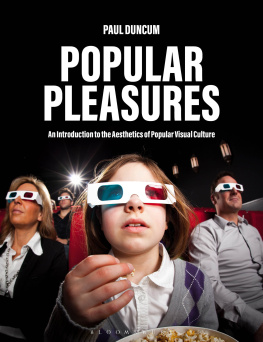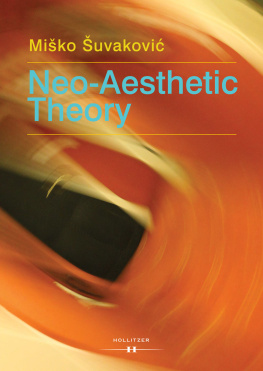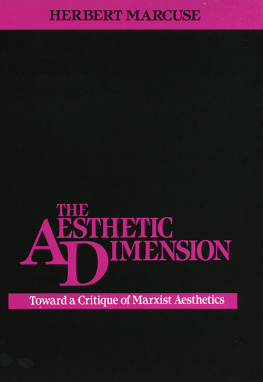On Slowness
Columbia Themes in Philosophy, Social Criticism, and the Arts
ON SLOWNESS
TOWARD AN AESTHETIC OF THE CONTEMPORARY
Lutz Koepnick
 Columbia University Press New York
Columbia University Press New YorkColumbia University Press
Publishers Since 1893
New York Chichester, West Sussex
cup.columbia.edu
Copyright 2014 Columbia University Press
All rights reserved
E-ISBN 978-0-231-53825-1
Library of Congress Cataloging-in-Publication Data
Koepnick, Lutz P. (Lutz Peter)
On slowness: toward an aesthetic of the contemporary / Lutz Koepnick.
pages cm.(Columbia themes in philosophy, social criticism, and the arts)
Includes bibliographical references and index.
ISBN 978-0-231-16832-8 (cloth : alk. paper)ISBN 978-0-231-53825-1 (e-book)
1. Slow life movement. 2. ArtsPhilosophy. I. Title.
BH39.K5877 2014
701'.17dc23
2014003914
A Columbia University Press E-book.
CUP would be pleased to hear about your reading experience with this e-book at .
COVER IMAGE: Hiroyuki Masuyama, McKinley Flight No. 2 (2006). Copyright Hiroyuki Masuyama.
COVER DESIGN: Milenda Nan Ok Lee
References to Web sites (URLs) were accurate at the time of writing. Neither the author nor Columbia University Press is responsible for URLs that may have expired or changed since the manuscript was prepared.
CONTENTS
True to its title, On Slowness has taken some time to reach the stage of publication. Preliminary versions of various chapters have been presented at various institutions and conferences over the last years. I am tremendously grateful to many colleagues, both in North America and in Europe, for inviting me to share some of this work and for offering incisive comments along the way. Special thanks go to the two anonymous readers for Columbia University Press, whose thoughtful observations and suggestions have greatly strengthened the arguments of this book. I am deeply indebted to both Washington University in St. Louis and Vanderbilt University. Without their generous financial support, neither the research and writing nor the publication of this book would have been possible. Thanks also go to Lydia Goehr and Gregg Horowitz for their enthusiasm about the project. Lisa Haegele has been of terrific help in getting the final manuscript ready for publication.
Preliminary versions of small portions of this book have previously appeared as articles. In all cases, however, earlier essays underwent significant rewriting and reconceptualization. For their kind permission to make selected use of published materials, I acknowledge the Germanic Review for Free Fallin: Tom Tykwer and the Aesthetics of Deceleration and Dislocation, Germanic Review 82, no. 1 (2007): 730, and Herzogs Cave: On Cinemas Unclaimed Pasts and Forgotten Futures, Germanic Review 88, no. 1 (2013): 271285; and Bloomsbury Publishing, for 01: Riefenstahl and the Beauty of Soccer, in Riefenstahl Screened: An Anthology of New Criticism, ed. Neil Christian Pages, Mary Rhiel, and Ingeborg Majer-OSickey (New York: Continuum, 2008), 5270.
It has become commonplace to say that our age of electronic networks, global transactions, and rapid transportation technologies causes many to suffer from too much speed in their lives. We cook, eat, drink, and grow up too fast, it is claimed. We have become unable to enjoy the prolonged pleasures of a good story, a thoughtful conversation, or an intricate musical composition. Sex no longer relies on artful games of erotic suspension and delayed fulfillment. Our attention spans shrink toward zero because we have to make too many decisions within ever shorter windows of time. Cell phones, handheld computers, and ubiquitous screening devices urge us to be always on and produce instantaneous responses, yet we no longer take the time to contemplate an image, develop a profound thought, traverse a gorgeous landscape, play a game, or follow the intensity of some emotion. Life is faster today than it has ever been before, it is concluded, but in accumulating ever more impressions, events, and stimulations we end up with ever lessless substance, less depth, less meaning, less freedom, less spontaneity.
Grassroots movements have organized into international networks to bring slowness to our ways of eating, whether they advocate the use of locally grown ingredients or praise the thrill of extended meal times. Personal fitness ventures offer a wide range of meditation classes to relax the mind and unwind the body. Urban planners reroute entire roads, block off inner cities, and install speed bumps to decelerate traffic and encourage us to rediscover the joys of urban walking. Travel agencies design detailed packages for all those eager to move beyond the beaten track and avoid the latest hypes of global tourism. Pedagogues develop new methods to refocus students attention and persuade their classrooms of the productivity of calmness and repose. And pundits, publicists, and public intellectuals fill airwaves and bookshelves with well-meaning advice about how to resist the speed of the present, ignore the relentless ticking of our clocks, and revive extended structures of temporality.
While this desire to slow down ones life might be extensive, the slowing down of the global economy in the wake of the financial crises of 2008 has done very little to correct our perception of too much speed and temporal compression. On the contrary. Slowness, as it were, has very different connotations in the realm of economic affairs than it has in the sphere of lifestyle choices. To praise slow markets and slow retail sales would border on the perverse and self-destructive. Many may fault the way in which global capitalism distributes its wealth and produces large arenas of poverty, but neither economic theorists nor populist politicians would seriously promote a decelerating of production, distribution, and consumption as a cure to the calamities of the market. Though the downturn of economic transactions initially resulted from a deliberate overheating of financial lending practices, the ensuing sluggishness of economic mobility was thus certainly not what gourmets, health professionals, traffic planners, and new age critics had in mind when applauding the pleasures of deceleration. Hardcore Marxists might see such disparities as revelatory: as indicative of the extent to which recent appreciations of slowness express the needs of those privileged to afford more wholesome ways of life precisely because they secretly, or not so secretly, profit from fast and thriving economies. Neoliberals, on the other hand, may ask whether our economic decline was triggered by a certain decrease in motivational resources of which middle-class longings for slower lives might be the most symptomatic. In both cases, however, the relation between the pace of the economy and the perceived or desired speed of everyday life is seen as reciprocal, with one either producing or requiring the other. In both cases, slowness merely functions as a derivate, an inversion, or an ideological masking of what may propel society into the future, whereas speed continues to inhabit the normative center of what it means to envision any viable form of mobility, progress, and transformation.













 Columbia University Press New York
Columbia University Press New York